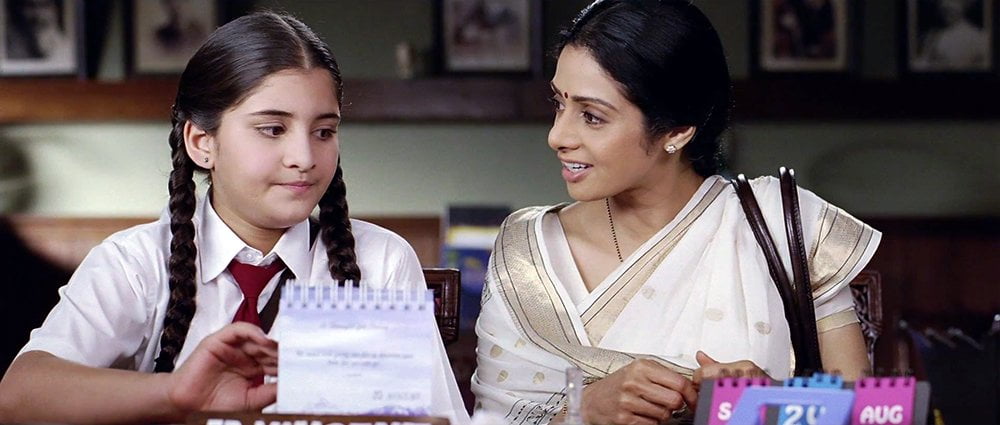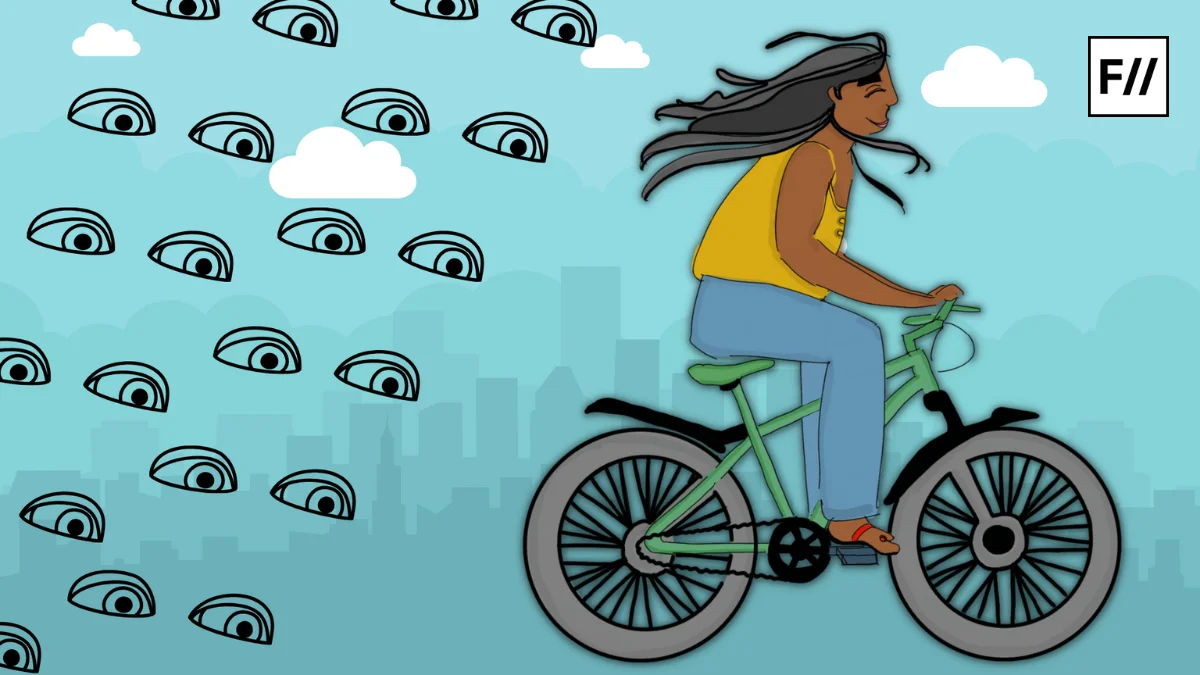Every relationship has its own complications. As psychology suggests, it is our relationship (or lack thereof) with our parents that is the most influential of them all. It not only forms the basis of our other relationships but also affects our self-image.
I believe fathers have it easier as they are not expected by the society to be actively involved in raising children. Whenever a person displays any deviant behaviour, it is usually not the father who is questioned but the mother. Our society rushes to say, “Unga amma unna seriya valakala” (Your mother has not raised you right). Hence, mothers are pushed into becoming the bad cop, the ones who turn into a fractal of the society itself as they try to make sure we have been force-fed every possible societal expectations known to our culture.
As women, we already have society shoving its ideologies down our throats, every sphere we enter. We are often made to feel incompetent, undeserving, and at times, outright unwelcome. Perhaps as daughters, having yet another reminder of them all every day at home, becomes a bit too much. Only this time though, we have an actual narrowed down target which we can zero in on as the source of what is limiting us. Hence we believe it is justified that we be annoyed at our mothers. They want to clip our wings, make sure our dreams are small, and make us wish we were just that bit thinner, or fairer-skinned. Why on earth should one feel guilty about it then, hating someone who destroys our spirit?
mothers turn into a fractal of the society itself as they try to make sure we have been force-fed every possible societal expectations known to our culture.
As feminists, one of the initial stages we all go through is unlearning. We unlearn that as women, we are under obligation to fulfil roles that patriarchy has assigned to us. We unlearn that our existence is to give pleasure and comfort to the men in the family. Also importantly, we unlearn the most common myth that women are women’s worst enemies. This myth ensures the taking away of any support system a woman might develop which only reinforces the idea that in order to lead a life of safety and comfort we must depend on the men in our family. On realising this, we stop feeling threatened by other women and instead feel the need to lift each other up. However, we need to come to terms with the fact that more often than not, mothers are overlooked in this process. This unlearning is rarely brought home.
Come to think of it, what have we, as those who claim to be ‘liberal’, done for our mothers? Have we ever tried to have an actual conversation with them about the changing times? Introduced them to this world of ‘New Women’? Helped them realise that it wasn’t only their job to be in charge of cooking and cleaning? Encouraged our fathers to take responsibilities around the house? Or even acknowledged their contributions in the first place? Instead we sneer when our father ‘harmlessly’ pokes fun at our mother’s cooking in front of the relatives, we are exasperated by her taste in TV shows (why can’t she be cool for once), and we’re annoyed that she cooks the same thing over and over again.
Also read: Why Do We Not Acknowledge Mothers As People First?
The motive here is not to glorify mothers for enduring this, but to make daughters realise that they have been perpetrators of the same patriarchy that they themselves are often victims of. Even if both parents have careers, somehow all these responsibilities, by default, fall on the mother to nobody’s bother.
Most women, no matter how old they are, seek comfort from their mothers. We expect them to prioritise us over their needs, which is often not the case when it comes to our fathers. This comfort, we have to acknowledge, also comes from a place of ‘consistency’. Hence any change we see in our mothers comes across as a threat and immediately makes us hate it. We do not feel comfortable thinking of our mothers as women who are just as capable of growth and change. We abhor our mothers trying new things, yet we hate them for not letting us experiment. How could we expect our socially-conditioned mothers to free us if we, even as ‘open-minded’ women, refuse to return the favour? We bind our mothers with our expectations, choosing to not apprehend our own hypocrisy.
daughters need to realise that they have been perpetrators of the same patriarchy that they themselves are often victims of.
One might argue that these expectations only arise because of their role as a parent, and has nothing to do with gender. If that is the case, fathers must also be held to such high standards as the mothers. Even as feminists, how many of us treat our fathers and mothers with the same deal of respect? In a country like India, many of us have internalised the idea that men are superior to women and hence deserve more respect. This is also because our fathers are usually older than our mothers; but let us not forget that this is again a conscious social construct kept in place so men have the upper hand in the equation.
While a lot has been discussed about how parents discriminate between their sons and daughters, it is perhaps high time to look at how children discriminate between their mothers and fathers. As adults, especially as women, we need to grow up, take responsibility, and make mothers our allies. We need to call out patriarchy and not let it once again affect the relationship between two women.
Also read: My Mother Was The First Feminist In My Life – I Just Didn’t Know It
It is not possible to expect all daughters to have ideal relationships with their mothers. But as women who are critically conscious of the system, it is not enough that we are only outraged by discrimination that happens outside our homes. It is not enough when we fail to lend our support to the women in the family. As feminists who claim to destroy systems that exploit women, let us not unconsciously become a part of yet another one.
Featured Image Source: ScoopWhoop
About the author(s)
Amudha is an English graduate from Chennai. She is an introverted, green-loving, anxiety-ridden, obsessive Potterhead who doesn't believe in labels.





Hello,
Before I begin please allow me to say I am a white woman from the United States & as such, there is so much that your website has taught/is teaching me about Feminism outside of that sphere. Thank you to everyone taking part in this website.
This article had me asking more about the role mothers play in the lives of daughters in India. Obviously, as in the rest of the world, each relationship is different. If you have any book titles, essays, etc that you feel might help educate someone like myself who is only familiar with the mother/daughter dichotomy in the US, it would be so appreciated.
The title of this article (& then once I read it, the actual article) is so powerful in helping me question my poor relationship with my mother that I wonder if my experience has always been phrased in a… digestible way so I never could look at my emotions from an outside view until now. And I’d like more of that! It’s not that I blame her, but I do think I haven’t even looked at how *she* would have been raised until now.
The intelligence shared here is just what so many people need. Any non-Western familial Feminist literature suggestions is welcomed.
Thank you so much.